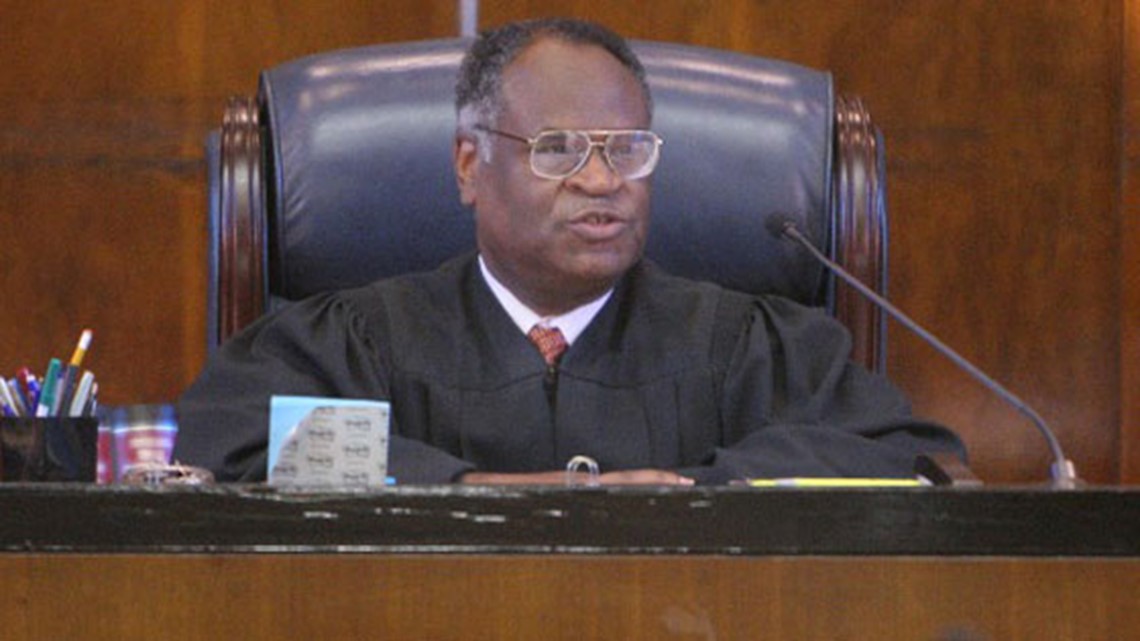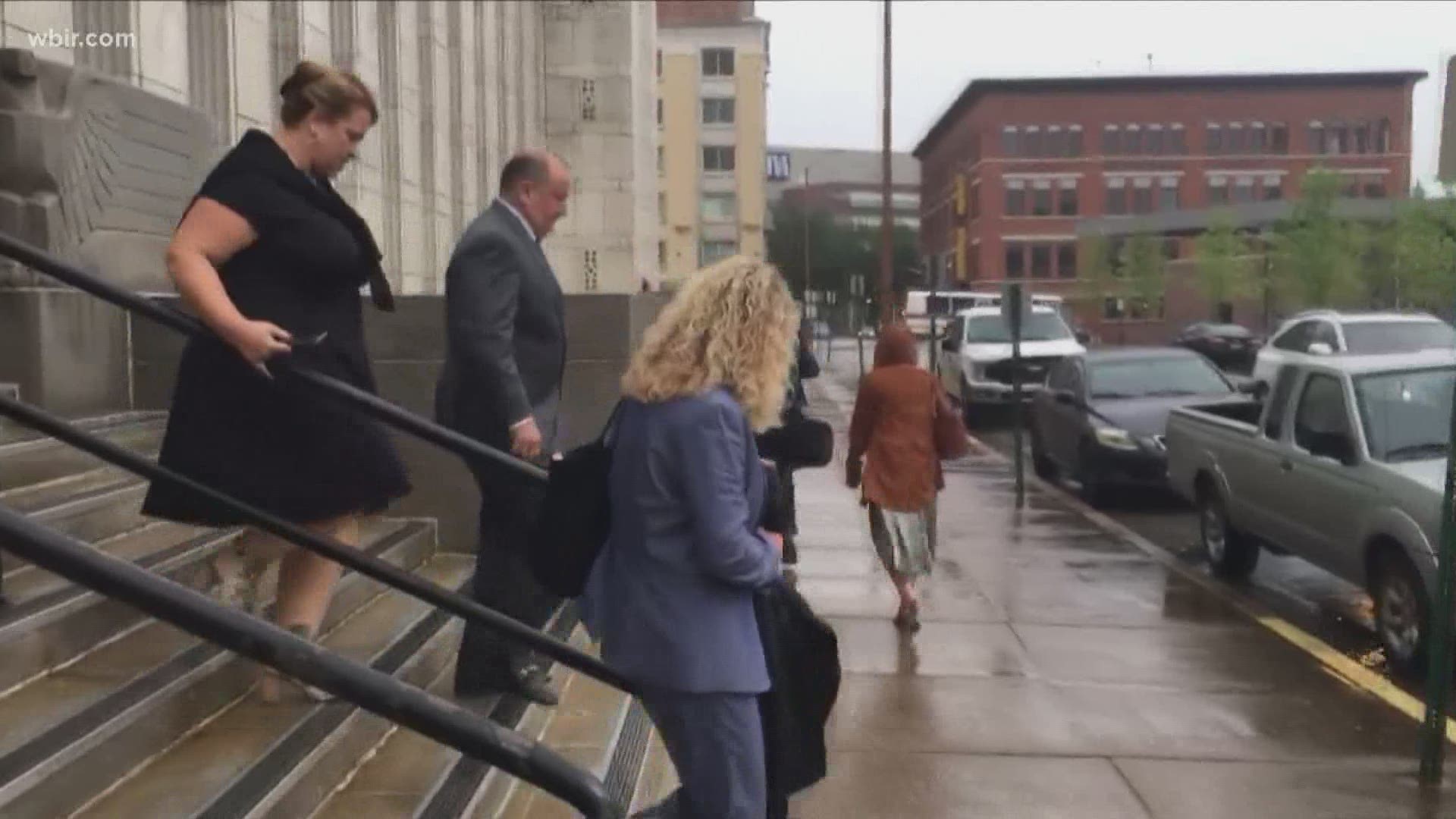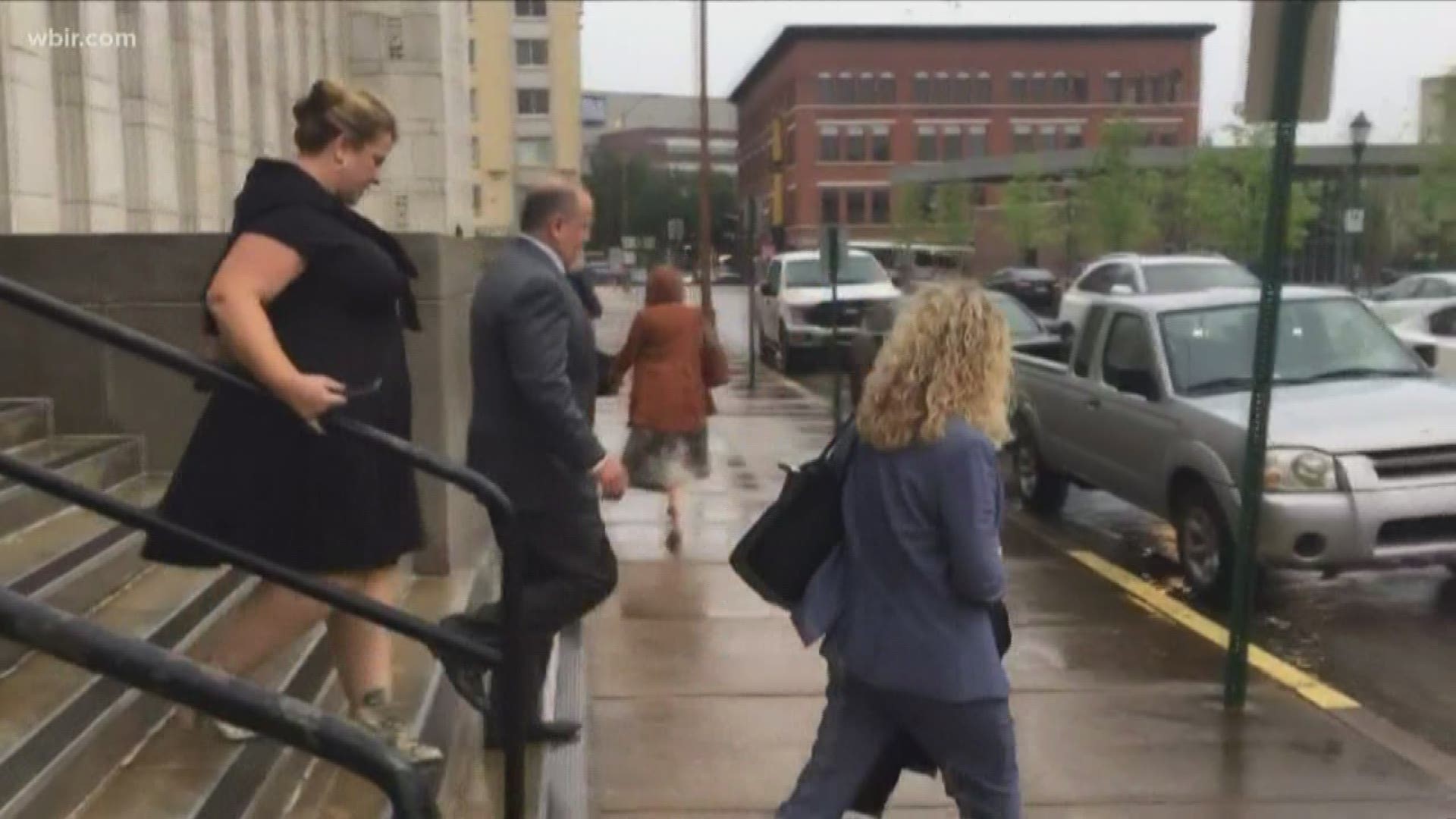KNOXVILLE, Tenn. — Federal prosecutors in Knoxville are asking the three-judge panel that decided this fall to toss the fraud convictions of Pilot's former president and two co-workers to reconsider their ruling.
Trey Hamilton, who prosecuted the lengthy case with co-counsel David Lewen, filed the appeal Monday in the Sixth Circuit U.S. Court of Appeals in Cincinnati. Monday was the deadline.
The government had previously indicated it would try to convince the Office of the Solicitor General to ask for what's called an en banc or full judicial review of the decision in the Sixth Circuit.
That's not what Monday's petition seeks. It merely asks the three appeals judges to think again about what they said in October.
"The United States respectfully asks the panel to reconsider and vacate its earlier opinion," the petition states.
By a 2-1 margin, the Sixth Circuit panel voted to throw out the February 2018 convictions of Mark Hazelwood, Scott Wombold and Heather Jones.
Senior Judge Richard F. Suhrheinrich and Judge Eric Murphy decided the court had improperly allowed secret tape recordings of Hazelwood using racially charged language during a retreat in October 2012 among some Pilot executives. Judge Bernice B. Donald dissented.
At the time, the government was investigating a scheme among Pilot sales employees to cheat some diesel trucking customers of promised rebates. The privately held, Knoxville-based company operates hundreds of convenience and trucking centers in the U.S. and Canada.
The judges found that the recordings were so unfair and prejudicial they tainted how the jury viewed the three defendants.
Hamilton argues the judges missed the point of why the evidence was allowed in the first place.
Hazelwood had presented himself at trial as a person of such solid business character and responsibility that he wouldn't do anything to hurt his employer. He posed as a person who certainly wouldn't do something like lead a criminal scheme, Hamilton argues.
As a result, the government needed to rebut that impression and show the jury the kind of person Hazelwood actually was, the prosecution argues.
Senior U.S. District Judge Curtis Collier agreed. He let Chattanooga jurors during the 2018 trial hear the tapes. He cautioned them the evidence had a limited purpose, and he said it addressed only Hazelwood's conduct and not that of Wombold, a former Pilot vice president, or Jones, a former customer sales rep.
"The majority appears to have misapprehended the purpose for which the recordings were proffered and admitted—to disprove the alleged existence of an obstacle on the path to fraud, rather than to prove any propensity to walk down that path—and failed to afford the appropriate deference to the district court’s factual findings," Hamilton wrote. "As a result, the opinion creates confusion about whether and how the government may seek to counter good-faith defenses—which are common in white-collar cases—in the future," the prosecutor wrote in his Monday motion.
He argued there's another problem with the ruling: "As written, the majority opinion will likely leave district courts wondering how to treat potentially offensive evidence like the recordings at issue here."
Hamilton made similar arguments to the three-judge appeals panel in February. The majority didn't buy it.
"The district court admitted the recordings on the theory that if the defendant was reckless enough to use language that could risk public outrage against the company, he was a “bad businessman,” and as a bad businessman, he was also reckless enough to commit fraud," the ruling states.
"This is vintage bad character evidence—and precisely the type of reasoning the Federal Rules of Evidence forbid."
The majority opinion also stated:
"The profoundly racist and sexist content of these recordings is so antithetical to the sensibilities of decent people, that we are “left in grave doubt” that anyone could scrub all traces clean from one’s mind regardless of the quantum of evidence presented," the majority opinion states. "These convictions also cannot stand."


Hazelwood, of Knoxville, later apologized for the recordings that aired in court and said they didn't represent who he was as a person.
Jurors found Hazelwood guilty of conspiracy to commit mail fraud and wire fraud and witness tampering. Wombold was convicted of wire fraud. Jones was convicted of conspiracy to commit mail fraud and wire fraud.
Coller sentenced Hazelwood to 12 1/2 years. Wombold got a six-year sentence. Collier gave Jones more than 2 1/2 years in prison.
They're appealing their convictions and sentences.
More than 10 Pilot employees reached plea deals with the government, many getting probation.
If the three-judge appeals panel declines to review its ruling, the case appears headed back to Collier and presumably will be retried.
As a result of the case, Pilot paid a $92 million penalty in what's called a criminal enforcement agreement with the government, restitution of some $56 million and millions more to resolve a series of lawsuits filed by customers who said they'd been duped in the fuel rebate scheme.



